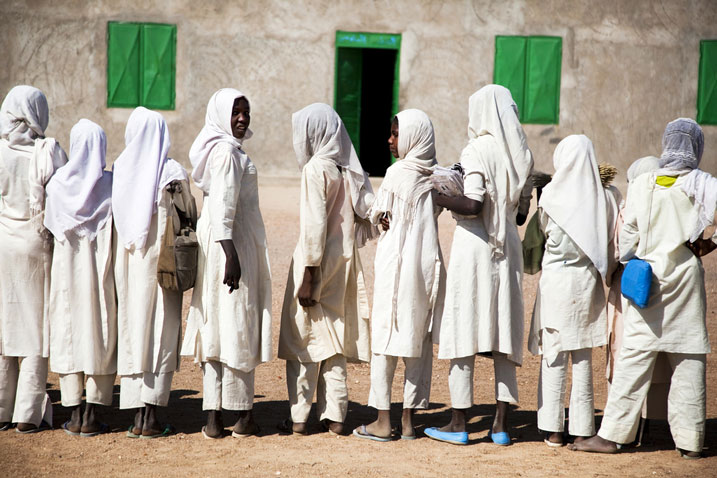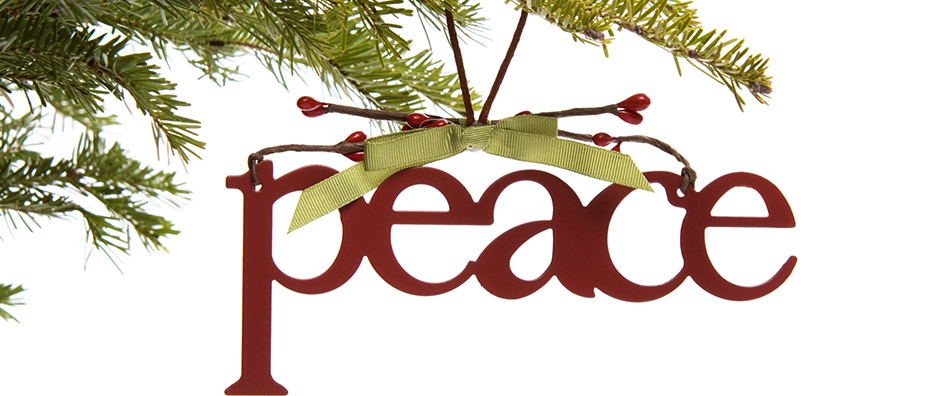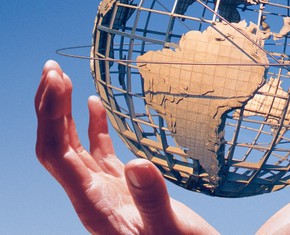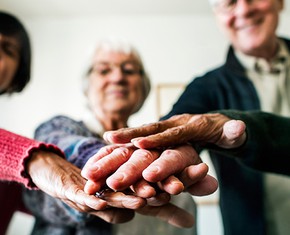The views expressed in our content reflect individual perspectives and do not represent the authoritative views of the Baha'i Faith.
The Christian world and all who love Christmas wish each other peace without reservation this time of year, contemplating ways to bring about the condition both personally and collectively.
We give an extra smile, extra food, an extra blanket, without judging the worthiness of the recipient — for after all, conflict begins with prejudice, whether based on ideology, actions, identity or gender. At this time of year, you might say, we “mother” those in need by giving unconditional love. This kind of nurturing extends beyond kin.
I immediately call to mind the incredibly kind and peaceful mothering I’ve encountered in many countries recently… on a sandy beach in Sri Lanka, two young girls rescued community members and cared for them after the tsunami… in West Africa, 100 girls read poetry to encourage other girls to stay in school… in a tent in Eastern Europe, a little girl in a refugee camp held the hands of anyone who needed soothing (an experience later seen in Haiti as well)… in West Africa, a girl whose own mother died warmly comforted her friends in the village… in the US, an immigrant woman from a post-war country, undeterred after being robbed of her savings, returns to her country to open a school… in a remote village in Indonesia, a 12 year-old helped soften the hearts of the fathers to secure the right to education for all the girls in her village, so she and her niece could become doctors.
I have seen the gentle touch of girls who had lost their mothers or fathers or grandfathers to disaster, epidemic or poverty-related tragedy, embracing others with empathy. I have seen girls determined to help educate their sisters and nieces without disrespecting their parents’ wishes. I have even seen them start schools after a war. What, exactly, is the role of women in the quest for peace on earth?
 When we encourage the instincts of girls and women, while also building educational capacity, we pave the path to peace. When we follow their example, we take an equally challenging step.
When we encourage the instincts of girls and women, while also building educational capacity, we pave the path to peace. When we follow their example, we take an equally challenging step.
Simply adding responsibilities to the shoulders of overworked women does not solve the problems of society. The more the community assists the family, the stranger, the ideologically different thinker in our midst, the greater the chances that a generation will grow up learning the value of cooperation and empathy that fosters peace. Religion can help both genders strive to anchor their interactions in these objectives.
A century ago, the Baha’i writings offered this metaphor for the role of religion:
The cause of God is like unto a college. The believers are like unto the students. The college is founded for the sake of the acquirements of science, arts, and literature. If the sciences are not therein and the scholars are not educated, the object of the college is not achieved. The students must show the result of their study in their deportment and deeds; otherwise they have wasted their lives…To them the cause of God must be a dynamic force transforming the lives of men. – Abdu’l-Baha, Star of the West, Vol. 7, No. 18, p. 178.
What might education transform men to do – to see the benefits of sustained nonviolence and to cultivate positive uses for technology? Could it transform the lives of women to develop their natural gifts and talents and apply them to safeguarding and sustaining the human family? Might it transform the inner lives of all, so that personal acts of loving kindness harmonize society and build cooperation in a way that moves us beyond war, over the coming centuries, as the mystics, poets and especially the messengers of God have challenged us to do?
When day breaks tomorrow, find a community gathering and listen for the cooing of a newborn child beside its mother. This is one kind of love that inspires hope in me. As long as we have more chances to introduce caring into our daily deeds and into our decisions that affect the human family and life on the planet, our grandchildren’s grandchildren may go beyond the cessation of war and experience the harmony and connectivity Baha’is call “the most great peace.”
[soundcloud url=”https://api.soundcloud.com/tracks/125629488″ params=”color=ff6600&show_artwork=false” width=”100%” height=”80″ iframe=”true” /]
















Comments
Sign in or create an account
Continue with Googleor